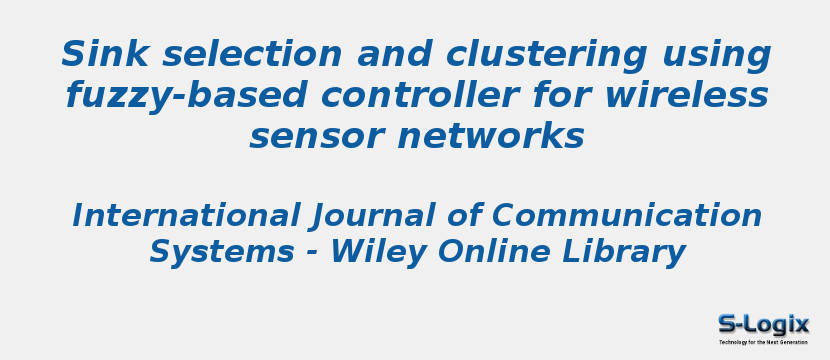Research Area: Wireless Sensor Networks
Applying multiple sink nodes in a large-scale wireless sensor networks (WSN) can increase the scalability and lifetime of the network. The current sink selection mechanisms assume an unlimited amount of buffer and bandwidth for the sink nodes. This can be problematic in real-world applications, especially when many cluster heads select a specific sink node and send their data to the sink at the same time. In this situation, the sink node may not have enough buffer to receive and process data; consequently, some packets are dropped. To mitigate these occasions, a fuzzy-based controller with reduced rules is proposed for sink selection by considering the capacity of the sink nodes. The capacity of the sink nodes is estimated using the long short-term memory (LSTM) technique. Then another fuzzy-based controller with reduced rules is designed to select the cluster head. The fuzzy rules are reduced by employing R-implications method. Reducing the number of fuzzy rules decreases the complexity of the fuzzy controllers. The results show the efficiency of the proposed sink selection and clustering techniques in terms of consumed energy, remaining energy, first node dead (FND), half nodes dead (HND), last node dead (LND), packet loss, and delay.
Keywords:
Author(s) Name: Ali Shahidinejad, Saeid Barshandeh
Journal name: INTERNATIONAL JOURNAL OF COMMUNICATION SYSYTEMS
Conferrence name:
Publisher name: Wiley
DOI: 10.1002/dac.4557
Volume Information: Volume33, Issue15 October 2020
